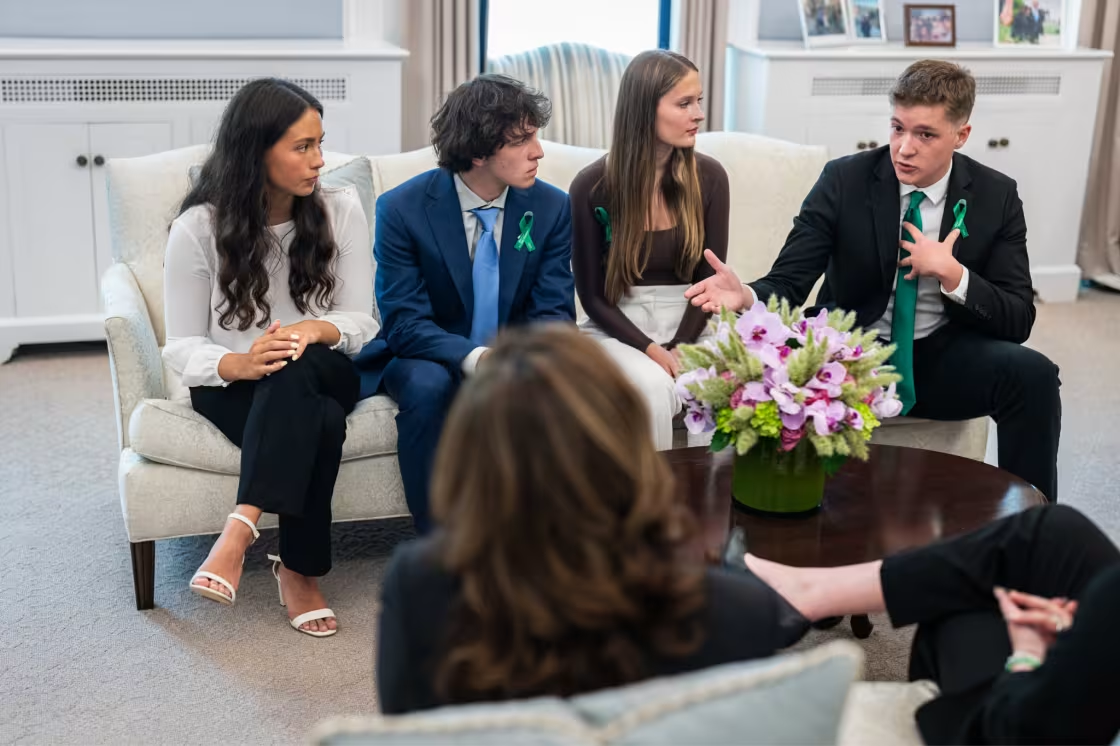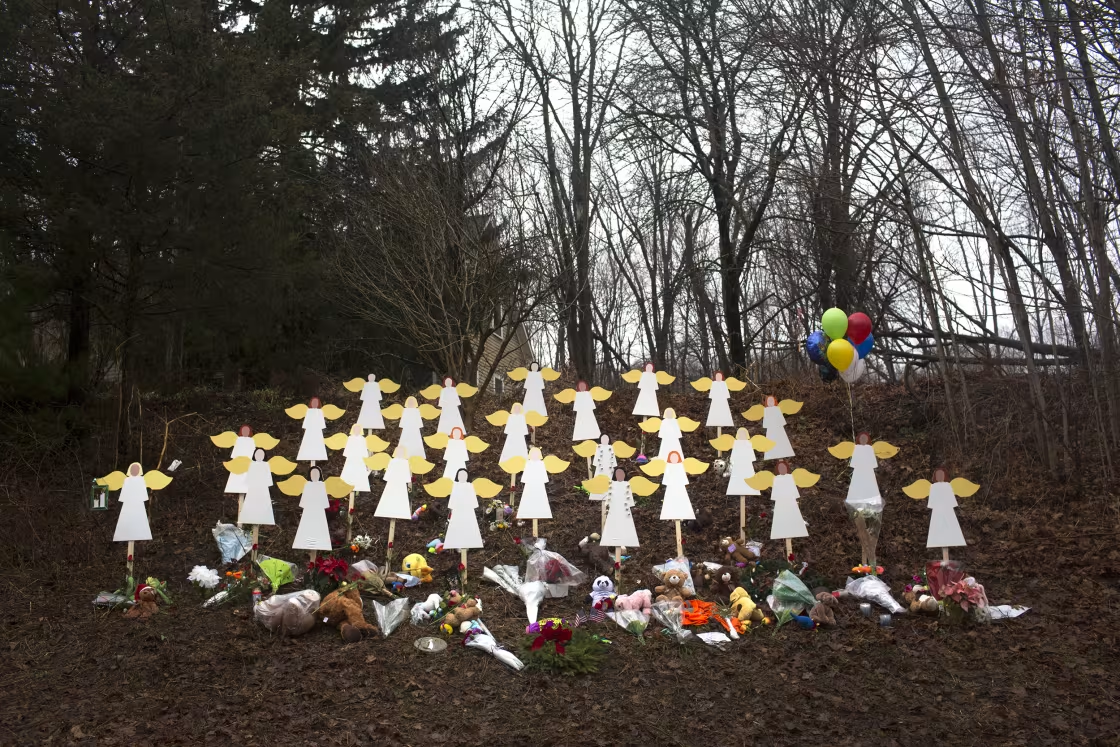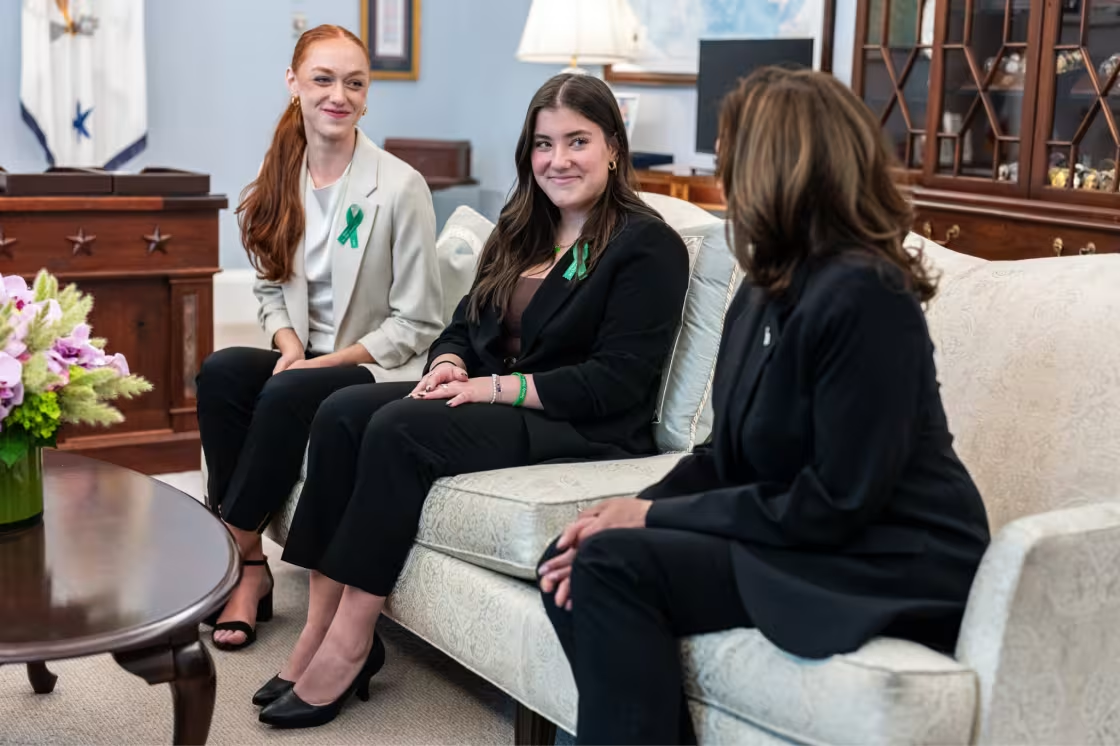
Grace Fischer survived the massacre at Sandy Hook Elementary School by staying quiet and huddled, as her first grade teacher softly read “The Nutcracker.”
Then she spent the rest of her childhood watching mostly from the sidelines as dozens of similar shootings shattered other schools across the country.
WATCH ANYTIME FOR FREE
Stream NBC10 Boston news for free, 24/7, wherever you are. |
Now 18, Fischer will vote in her first presidential election in November. It’s a monumental moment, nearly 12 years after she endured one of the deadliest school shootings in U.S. history, and it has given her and her peers hope that they can effect change, NBC News reports.
“It’s a huge turning point in our lives,” said Fischer, who was 6 when a gunman killed 20 first graders and six educators at Sandy Hook Elementary School on Dec. 14, 2012.
Get updates on what's happening in Boston to your inbox. Sign up for our News Headlines newsletter.

Activists at the time hoped the tragedy in Newtown, Connecticut, would become a watershed moment and spark significant legislative action, said Emma Brown, executive director of Giffords, the gun safety group founded by former Rep. Gabby Giffords — a shooting survivor.
“The country was forced to look at this issue in a visceral, terrible way,” Brown said. “The loss of all of those kids in their classroom was so inconceivable and so horrific that even the politicians and the folks who had been trying to act like this wasn’t a growing problem in this country were unable to deny it for the first time."
U.S. & World
States have since passed hundreds of gun-safety laws, but major federal bills that have been proposed, including bans on semiautomatic weapons and high-capacity magazines, have failed.
After the Las Vegas mass shooting in 2017, the Trump administration imposed a federal ban on bump stocks, which are gun accessories that allow semiautomatic rifles to fire more quickly. But the Supreme Court overturned the regulation this year.
Friday marked 20 years since the 1994 federal assault weapons ban expired. Meanwhile, mass shootings have become more frequent.
Since 2013, at least 122 people have been killed by gunfire in 64 planned school shootings, according to NBC News’ tracker. Most recently, on Sept. 4, two students and two teachers were killed at Georgia’s Apalachee High School allegedly by a 14-year-old suspect with an AR-style rifle, authorities said.
On Thursday, the Johns Hopkins Center for Gun Violence Solutions said guns were the leading cause of death among children and teens, killing more people ages 1 to 17 in the U.S. than car crashes and cancer, for the third year in a row.
“We were told this would be what turns everything around,” said Emma Ehrens, 18, who was next to the Sandy Hook gunman as he shot her classmates. “It really breaks your heart a little bit more every time.”

Ehrens, Fischer and two other first grade Sandy Hook survivors who spoke to NBC News said they are hoping to turn the tide by electing Vice President Kamala Harris as president.
“It’s a no-brainer for me,” said survivor Lilly Wasilnak, 18.
The teens first met Harris at the White House on National Gun Violence Awareness Day on June 6, as they were preparing to graduate high school. They shared their individual accounts of the shooting with Harris, who thanked them for their courage.
“None of you should have had the experience that you’ve had at all,” Harris told them, according to a video released by the White House. “Know that you guys are moving the needle.”
Harris has said keeping students safe from gun violence at schools is a top priority. Her plan, which the survivors support, includes banning assault weapons and high-capacity magazines, and requiring universal background checks.
Harris also champions so-called red flag laws that allow a family member or law enforcement to seek a court order to temporarily confiscate guns if they feel a gun owner may cause harm.

Matt Holden, another survivor who turned 18 last month, said these plans differ from those of Republican presidential nominee Donald Trump and his running mate, JD Vance, who received backlash last week after saying school shootings are a “fact of life.”
“I don’t like this. I don’t like to admit this. I don’t like that this is a fact of life,” the Ohio senator said at a rally in Phoenix. “But if you’re, if you are a psycho and you want to make headlines, you realize that our schools are soft targets.”
“We’ve got to bolster security so if a psycho wants to walk through the front door and kill a bunch of children, they’re not able to,” Vance added.
At the rally, Vance said strict firearms restrictions are not the solution. Similarly, at a National Rifle Association event in May, Trump said he would roll back Biden administration executive orders designed to reduce gun violence.
In a response to a request for comment, the Trump campaign provided quotes from relatives of shooting victims in support of the former president, including JT Lewis, whose brother Jesse was killed in the Sandy Hook shooting.
“President Trump established the Federal School Safety Commission and signed the Stop School Violence Act,” Lewis said. “He supports hardening schools and protecting our nation’s children. Kamala Harris wants to take police out of schools and leave our kids defenseless. The choice is easy.”
Brown, the Giffords executive director, said gun safety laws are the way forward to ensure school shootings do not remain the norm.
“There’s a ticket in this race that says over and over that it doesn’t have to be this way,” she said.
Giffords spent $15 million to help Harris’ campaign as well as other House candidates who favor tougher gun laws, NBC News first reported.
Since Sandy Hook, states have passed more than 620 gun safety laws, Brown said. In 2022, President Joe Biden enacted the Bipartisan Safer Communities Act, the most significant gun-safety law in nearly 30 years.
“The momentum is there, and the will is there,” Brown said.
This fall, when the survivors vote for the first time, Wasilnak and Holden said it will be in honor of their first grade classmates who will not get to experience this milestone, as well as the educators who died making sure they would.
“I’m casting a vote for the 26 who can’t,” Wasilnak said.
This story first appeared on NBCNews.com. More from NBC News:



